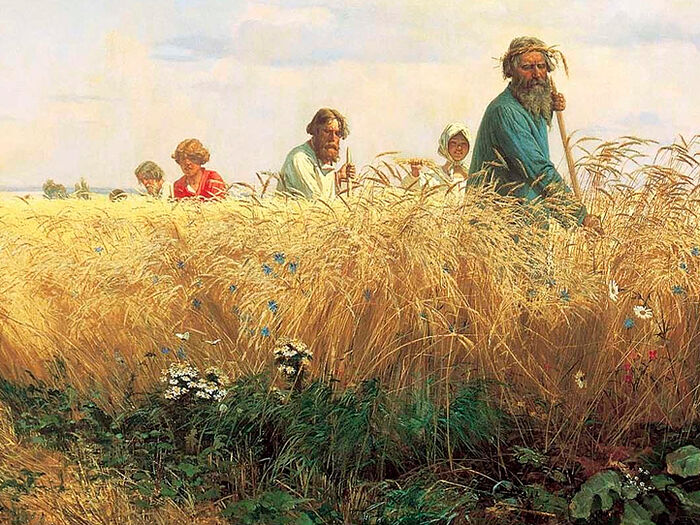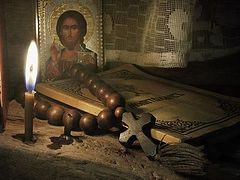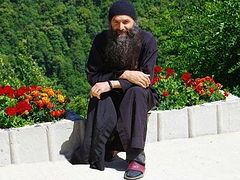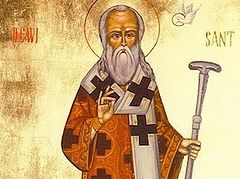Another parable He put forth to them, saying: “The kingdom of heaven is like a man who sowed good seed in his field; but while men slept, his enemy came and sowed tares among the wheat and went his way. But when the grain had sprouted and produced a crop, then the tares also appeared. So the servants of the owner came and said to him, ‘Sir, did you not sow good seed in your field? How then does it have tares?’ He said to them, ‘An enemy has done this.’ The servants said to him, ‘Do you want us then to go and gather them up?’ But he said, ‘No, lest while you gather up the tares you also uproot the wheat with them. Let both grow together until the harvest, and at the time of harvest I will say to the reapers, “First gather together the tares and bind them in bundles to burn them, but gather the wheat into my barn.”’” (Matthew 13:23-30)
The parable is interesting to me for many reasons, but I want to focus on a few points:
The “kingdom of heaven is like” forces us to stop and think – in what way is it like ….? Or, exactly how is …. like the kingdom of heaven? We have to think about wht kind of comparison is Jesus making? And we know since He uses parables, He is not necessarily being systematic nor dogmatic. Parables tap into our creativity, something which God has gifted to humans. They help us to understand that spirituality or the spiritual life sometimes defy logical explanations, or require us to think outsice the box and not rely only on rational thought. Parables point out that there is more to the spiritual life than dogmatism or being doctrinaire.
Though Christ tells us this parable is giving us some insight into the Kingdom of God, the man who plants the seeds probably does not represent God – the enemy plants the weeds while the man slept, something God doesn’t do as God has no physical body that needs rest. The owner is caught by surprise and so did nothing to prevent the enemy from sowing weeds in his garden. Or perhaps it is suggesting to us whenever we deal with God we are dealing with mystery and we should never be so over confident to think we always know what God is doing or what God wants from us. Or perhaps the comment that the owner was sleeping is an irrelevant detail to the story – the point is not that the owner slept but that an enemy secretly managed to sow the weeds in the garden. Jesus will in His interpretation of the parable say the owner is the Son of Man (Matthew 13:37). This fact also tells us that the parable doesn’t rely purely on human logic, especially in its interpretation.
The parable is about the Kingdom of Heaven, yet it is being expressed purely in the terms of human activity and experience. God’s Kingdom is surprising because though it has something to do with human activity, it involves God working out His plan of salvation in and through us. God allows the good seed and evil weeds to both sprout and grow and produce seed. The Kingdom of God does not stop normal or natural events from occurring. In this world, even in the Church, people do both good and bad. When the wheat begins to sprout, so do the noxious weeds (the specific weed mentioned in the parable, tares or darnel, resembles wheat, making it hard to distinguish between the plants).
The owner of the field does not want his servants to uproot the noxious weeds for fear that in pulling up the weeds, the workers will kill or badly harm the wheat. The owner thinks it better for the wheat to let the wheat and weeds grow together. The wheat will be less harmed from being entwined with weeds than it would if the weeds were uprooted. The owner wants as much of the wheat to mature as is possible. He does not see the weeds as posing a permanent threat to the wheat’s maturation. While we prefer a black and white distinction between good and evil, and totaly separation of the two, the reality is they are intermixed in our world, in our lives, in our selves. It is not easy to separate the two without hurting the good as well. So the Kingdom requires patience, time, discernment, wisdom, and perfect timing.
So the owner advocates for the good wheat and the bad weeds to grow together in order to have the largest crop possible. The wheat will not be converted to weeds, but neither will the weeds be changed into wheat. They will grow together even though they are unlike each other. Only the wheat produces usable fruit, but the owner does not want to destroy the weeds because that poses a threat to some of the wheat. The weeds will use just as much water, air and nutrients as the wheat, but they will not produce anything beneficial. Still, the owner chooses to let them grow in order to protect his wheat from damage.
The Kingdom of Heaven is not lightening strikes destroying the weeds (those who are evil). Not even precision or surgical lightening strikes which hit only the weeds are envisioned. Rather, the mercy of God to allow all to grow and come to fruition. In God’s time, separation takes place, and only in God’s Kingdom will all be revealed.
We might think about St Paul’s words about being an evangelist for Christ:
For though I am free from all men, I have made myself a slave to all, that I might win the more. To the Jews I became as a Jew, in order to win Jews; to those under the law I became as one under the law—though not being myself under the law—that I might win those under the law. To those outside the law I became as one outside the law—not being without law toward God but under the law of Christ—that I might win those outside the law. To the weak I became weak, that I might win the weak. I have become all things to all men, that I might by all means save some. I do it all for the sake of the gospel, that I may share in its blessings. (1 Corinthians 9:19-23)
St Paul sees his life, intermixed with all kinds of people – good and bad, observant Jews and Gentile, those following God’s commandments and those ignorant of them, those who are zealous for the faith and those who have very little faith. He not only interacts with all of these various kinds of people but in some manner seeks them out to be with them or like them because He believes it is the only way he can influence them or help them see Christ. Paul doesn’t say he becomes evil or a sinner, but he goes as far as he can to bring Christ to every person in the world. He becomes all things to all people in order to save some. He doesn’t do some things to save all. He realizes there are to be no limits to love or to his witnessing to Christ. But he is realistic enough to know that not everyone will embrace Christ because of his efforts.
And in the end, the weeds are to be harvested first, and only after the weeds are harvested and burned is the wheat to be harvested. The wheat is allowed to come to full fruition – “But those that were sown upon the good soil are the ones who hear the word and accept it and bear fruit, thirtyfold and sixtyfold and a hundredfold” (Mark 4:20). The wheat has to learn patience with having the weeds growing in its midst. The wheat comes to trust the owner, knowing the owner is doing everything possible to bring the wheat to fruition. The Kingdom of Heaven is like … the patience of farmers who have to deal with so many threats and risks to their crops, and when they persist, they see the fruit of their labor.
Be patient, therefore, brethren, until the coming of the Lord. Behold, the farmer waits for the precious fruit of the earth, being patient over it until it receives the early and the late rain. You also be patient. Establish your hearts, for the coming of the Lord is at hand. Do not grumble, brethren, against one another, that you may not be judged; behold, the Judge is standing at the doors. As an example of suffering and patience, brethren, take the prophets who spoke in the name of the Lord. Behold, we call those happy who were steadfast. You have heard of the steadfastness of Job, and you have seen the purpose of the Lord, how the Lord is compassionate and merciful. (James 5:7-11)





